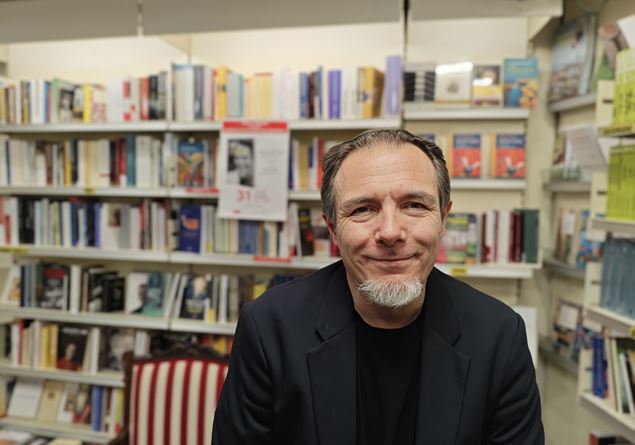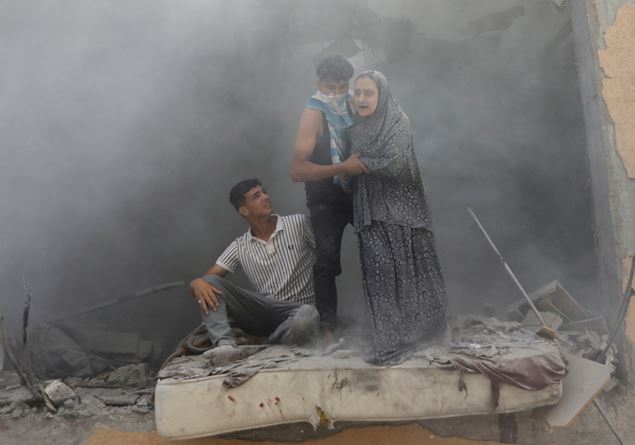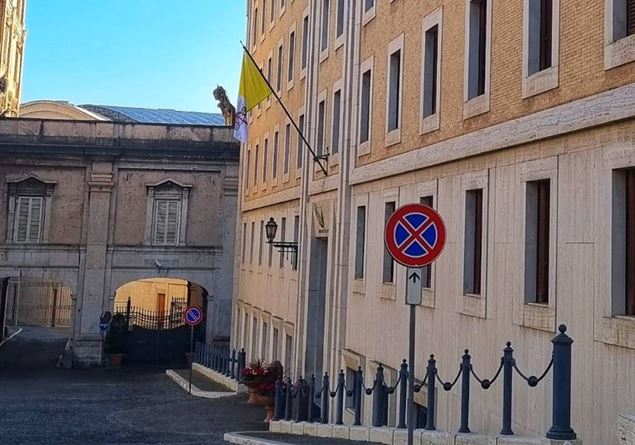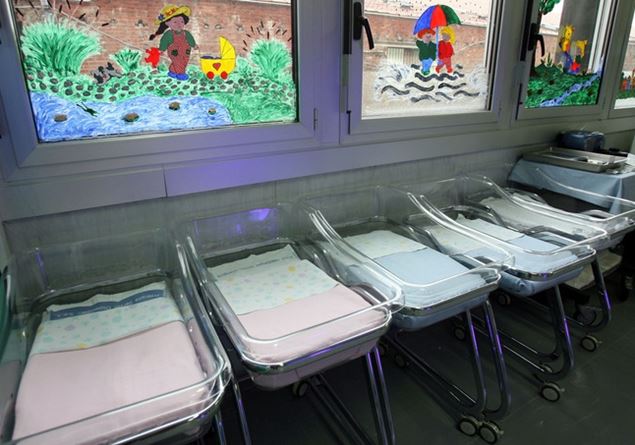A child injured in the bombings in Gaza.
Will it be a turning point year? Maybe yes. In fact, it’s almost certain. There are too many open questions in the world inherited from 2024: two wars of global scope, the one in Ukraine and the one in Gaza, which have dragged on for too long, the solutions for the now frequent climate changes, the social instability in many states , the fragility of Europe, the government action of new political figures who have returned or risen to prominence, such as the revived Donald Trump or Javier Gerardo Milei, the Argentine president who advocated wild liberalism, “revolutionary freemarket”, how he crowns itEconomist . In 2025 the issues will necessarily come to a head. The problem is that we don’t know how the knots will be untied. Internationally, the world continued to spin on bloody boards. Ukraine and the Middle East remain the theaters of two great humanitarian tragedies.

The funeral of an Israeli soldier.
The first thought goes to Ukraine: will Trump be able to stop a conflict that recalls the imperialist wars of the nineteenth century and which has already sacrificed hundreds of thousands of young people – not to mention civilians – on the geopolitical altar of the conquest of portions of territory? We often forget that the United States not only has the Atlantic coast, but also the Pacific coast. And on the Eastern front, China is causing fear. The economic growth of the Dragon Empire and especially that of arms is impressive. Beijing acquires weapons six times faster than the American empire, and has doubled its atomic and ballistic arsenal in the last four years. It means it is potentially ready for war with America. And we all hope for perpetual peace, which will continue the irenic and commercial season inaugurated by Nixon and Kissinger. But are Taiwan, otherwise known as Formosa, sure that it will remain independent? Or will it be the spark of a new conflict, in this era in which the dynamics of the Cold War return forcefully?

Celebrations in Syria for the fall of Assad.
2025 is the year of uncertainties also in the Middle East, one of the most unstable areas of the planet, the theater of the great game of world powers or aspiring ones. In Syria, for example, the hotbed of a war that has been going on for 14 years and of the most serious migratory crisis that has ever affected Europe, the new regime of al Jolani, leader of the Hayat Tahrir al-Sham (Hts), on which a 10 million dollar bounty is still pending in the United States, will peace and – if not democracy – at least a non-authoritarian and cruel regime return? The new leader of a country that is still the fruit of the appetites of numerous actors probably doesn’t even know it. From Israel, which took advantage of the situation to annex new territories, such as the Golan Heights and the Syrian side of Mount Hermon, on the border with Lebanon, to Turkey, the staunchest supporter of the opposition to Assad, which maintains its military presence on the border through the self-styled Syrian National Army, in constant struggle against the Kurds. But the United States also has its protectorates in North East Syria and even Russia has not given up its military bases, the air base of Khmeimim and the naval base of Tartus. This complex and varied field of forces could destabilize the fragile balance of power achieved by al Jolani, who is trying to federate all the militias by annexing even the defeated ones, with imponderable consequences.
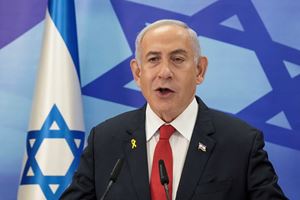
Benjamin Netanyahu.
The one who certainly emerges defeated from the great Syrian game is certainly Iran, devastated by Israeli attacks and reprisals, defeated with the capture of Damascus (whose regime it was an ally of), last December 8, and with its allies, such as Hezbollah , annihilated by the IDF. But we must not forget that the new course of the Middle East will also depend on the Arab States of the Gulf, which at the moment seem to be watching (but is it really like this, and above all, will it be like this for the next twelve months too?).
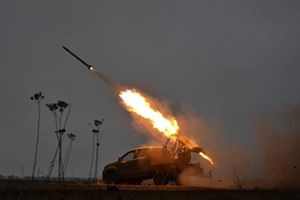
The launch of a missile by the Ukrainian army.
As for Israel, will the martyrdom of Gaza end after more than a year of flagellation of the Strip? The recent position taken by two international courts, that of the UN and that of Human Rights, to speak of Pope Francis and Amnesty International, has seriously called into question the hypothesis of genocide against the civilian population, starting from children (over 30 thousand killed by the IDF). Will this massacre end in 2025? Or will we have to continue to pretend to consider the massacre in the eyes of the world as a collateral effect of an anti-guerrilla action without anyone lifting a finger to stop it?

A Ukrainian trench on the front line.
And in Europe? The old continent sees its two main pillars passing from the role of locomotives to big sick people. We are talking about the Franco-German axis, of course, which has seen governments collapse, social tensions and economic crises of global scale throughout 2024. France finds itself without a clear majority in Parliament and Germany has to face a crisis that has even involved its manufacturing – the second in the world after the American one – up to the closure of historic factories such as Volkswagen. French President Macron, thanks to his powers as a republican monarch, having arrived halfway through his second term, is struggling to manage the power of a government and a Parliament buffeted by the winds of the right and the left, in an era in which “centrism” succumbs under the pressure of identity and radical positions (also the result of the economic crisis). Will it be enough to appoint the experienced centrist politician François Bayrou as prime minister (who in the French system has a supporting role)? As for Germany, the leader who replaced Merkel, the social democratic chancellor Olaf Scholz, proved to be weak, moreover in a coalition that was too heterogeneous, with the right, including the neo-Nazi ones, attacking (and the tycoon also fanned this flame Donald Tusk).

Donald Trump and his wife Melania.
In this context, the European Union, grappling with the attempt to legally regularize the privileges of Big Tech and with the rediscovery of a lost leadership (also in the Ukraine affair) is clearly in difficulty. Investments in the field of Artificial Intelligence are progressing at a rapid pace, much faster than legal and ethical interventions (there is talk, even at the United Nations level, of “algorethics”). It must be said that Europe was the first to act with the European AI Act which aims to establish high global standards for safety in the field of Artificial Intelligence. The problem is that legal and ethical changes, as well as the great green revolution, necessary to tackle climate warming, cost huge resources that many citizens, many companies and many governments cannot afford.

Volodymyr Zelensky.
The “Green Deal” is extremely expensive from a financial point of view. And it is unlikely that the European Union will achieve the objectives set for 2030. To all this we must add the poor results, especially in the diplomatic field, in resolving humanitarian crises and stopping wars, also because we are proceeding in no particular order, especially for all the negotiations undertaken by Macron with Russia ended in a dead end. 2025 is therefore also the year of redemption for Europe. It won’t be easy.
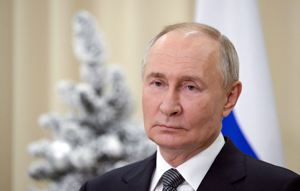
Vladimir Putin.
Among the great anniversaries that will be celebrated in 2025, the most important are that of the end of the Second World War and that of the birth of the United Nations (the founding Statute was adopted in June 1945 at the San Francisco Conference). Eighty years ago the organization was founded, daughter of the League of Nations, which today has 193 member states, which was supposed to guarantee peace in the world, but which the State of Palestine cannot yet access, by virtue of the veto of the United States . The crises of recent years have shown its weakness now recognized globally. The Glass Palace has been unable to stop conflicts such as those in Ukraine or the Gaza Strip. Not to mention other hotbeds such as Libya, Syria (resolved on the ground by jihadists), Haiti, Sudan and Yemen. But the list goes on. The UN proves its 80 years. And who knows whether 2025 may release a spark of light to reform a system that is now paralyzed, but which the whole world desperately needs.

